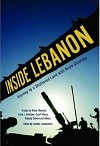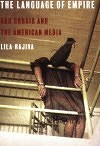Middle East

In May 2006, Noam and Carol Chomsky visited Lebanon for the first time—just two months before Israel unleashed a new military campaign against both Lebanon and Palestine. During their eight-day trip, they toured refugee camps and a former Israeli prison and torture compound; met with political leaders—including the pro-government coalition; and Noam conducted interviews and gave public lectures on U.S. imperialism and the imminent crises facing the Middle East. | more…
The chief, indeed the only, justification that Washington offered for its invasion of Iraq during its build-up for war between September 2002 and March 2003,was the need to “disarm” an Iraqi regime that Washington contended had broken UN resolutions banning weapons of mass destruction in that country. The problem, though, was that there was no hard evidence that Iraq, which had effectively destroyed its weapons of mass destruction in the 1990s under UN supervision, had any such weapons—or if it did that they were functional and constituted a significant threat. Nevertheless, the Bush administration continued to insist (based on speculation, hearsay, and what turned out to be fabricated evidence) that Iraq had such banned weapons in significant quantities and was actually deploying them. In an extraordinary propaganda campaign in which the whole mainstream media took part, the U.S. population was led to believe that they were in imminent danger of attack from these phantom weapons and had no choice but to support a pre-emptive invasion of that country | more…
Three themes stand out in Iraq’s history over the last century, in the light of the present U.S. plans to invade and occupy that country. First, the attempt by imperialist powers to dominate Iraq in order to grab its vast oil wealth. In this regard there is hardly a dividing line between oil corporations and their home governments, with the governments undertaking to promote, secure, and militarily protect their oil corporations. Second, the attempt by each imperialist power to exclude others from the prize. Third, the vibrancy of nationalist opposition among the people of Iraq and indeed the entire region to these designs of imperialism. This is manifested at times in mass upsurges and at other times in popular pressure on whomever is in power to demand better terms from the oil companies or even to expropriate them. The following account is limited to Iraq, and it provides only the barest sketch | more…
I have been in Palestine for two weeks and one hour now, and I still have very few words to describe what I see. It is most difficult for me to think about what’s going on here when I sit down to write back to the United States. Something about the virtual portal into luxury. I don’t know if many of the children here have ever existed without tank-shell holes in their walls and the towers of an occupying army surveying them constantly from the near horizons. I think, although I’m not entirely sure, that even the smallest of these children understand that life is not like this everywhere. An eight-year-old was shot and killed by an Israeli tank two days before I got here, and many of the children murmur his name to me—Ali—or point at the posters of him on the walls. The children also love to get me to practice my limited Arabic by asking me, “Kaif Sharon?” “Kaif Bush?” and they laugh when I say, “Bush majnoon,” “Sharon majnoon” back in my limited Arabic. (How is Sharon? How is Bush? Bush is crazy. Sharon is crazy.) Of course this isn’t quite what I believe, and some of the adults who have the English correct me: “Bush mish majnoon”—Bush is a businessman. Today I tried to learn to say, “Bush is a tool,” but I don’t think it translated quite right. But anyway, there are eight-year-olds here much more aware of the workings of the global power structure than I was just a few years ago | more…
The letter of support, signed by the leaders of eight European countries last January, for the Bush administration’s inexorable push for war with Iraq was both singularly ideological and shortsighted. The list of values that the signatories claim to share with the United States is altogether unexceptionable: “democracy, individual freedom, human rights, and the rule of law.” But there is a crying omission: free-market capitalism. This omission is all the more striking since there is no fathoming the infamous terrorist attack of September 11, 2001 without bearing in mind that its main target was the World Trade Center, a prominent symbol and hub of globalizing capitalism | more…
On December 19, 2002 U.S. Secretary of State Colin Powell declared that the 12,000 page document that Iraq delivered to the United Nations on December 7, listing its secret weapons programs together with any dual use agents that could be used in proscribed weapons systems, contained significant omissions. It thus constituted, in the view of the Bush administration, a further “material breach” in Iraq’s obligations under current U.N. resolutions. All of this was meant to add to Washington’s case for waging a war on Iraq, ostensibly in order to “disarm” it | more…
Jonathan Nitzan and Shimshon Bichler, The Global Political Economy of Israel (London and Sterling, Virginia: Pluto Press, 2002), 407 pages, cloth $75.00, paper $24.95.
One of the characteristics of much academic writing is an obsession with theory at the expense of empirical investigation. It is rare to find a book that combines genuinely novel theoretical exploration with rigorous empirical study, the more so in fields such as political science where abstraction seems to have become the norm. It is for this reason that The Global Political Economy of Israel is such a gripping read. A remarkable investigation into the concrete workings of the Israeli and U.S. economies that avoids the fatuous generalities of much of the globalization literature, it presents a challenging theoretical framework that not only clarifies the past but also seeks to understand the present | more…
Aside from the obvious physical discomforts, being ill for a long period of time fills the spirit with a terrible feeling of helplessness, but also with periods of analytic lucidity, which, of course, must be treasured. For the past three months, now I have been in and out of the hospital, with days marked by lengthy and painful treatments, blood transfusions, endless tests, hours and hours of unproductive time spent staring at the ceiling, draining fatigue and infection, inability to do normal work, and thinking, thinking, thinking. But there are also the intermittent passages of lucidity and reflection that sometimes give the mind a perspective on daily life that allows it to see things (without being able to do much about them) from a different perspective. Reading the news from Palestine and seeing the frightful images of death and destruction on television, it has been my experience to be utterly amazed and aghast at what I have deduced from those details about Israeli government policy, more particularly about what has been going on in the mind of Ariel Sharon. And when, after the recent Gaza bombing by one of his F-16s in which nine children were massacred, he was quoted as congratulating the pilot and boasting of a great Israeli success, I was able to form a much clearer idea than before of what a pathologically deranged mind is capable of, not only in terms of what it plans and orders but, worse, how it manages to persuade other minds to think in the same delusional and criminal way. Getting inside the official Israeli mind is a worthwhile, if lurid, experience | more…
The current Palestinian Intifada and Israel’s brutal response has been the subject of countless articles over the last two years. There is however a disappointing vacuum within left analysis, with much of this writing attempting to explain the character of Israeli policy through the right-wing views of Ariel Sharon. Within this framework, Israeli strategy is presented as a racist extension of colonialist designs on the Occupied Territories sometimes including the expulsion of Palestinians from the West Bank and Gaza Strip (hereafter referred to as WB/GS) | more…
One evening, shortly after September 11, I was conducting a college English class when one of my students asked a question about the accumulating body of information on women and Islam. It was one of many questions about the Middle East asked of me in the days after the tragedies; this one was about the veil, and why women in the Middle East “had to wear it.” I explained that not all women in the Middle East were Muslim (I myself am a Palestinian Christian), but that even many Muslim women did not veil. However, many did, and for myriad reasons: mostly for personal and religious reasons and, for some, upon compulsion | more…

The Language of Empire is a study of how and why the torture of Iraqi prisoners at Abu Ghraib was white-washed by the American media. Tracing the connections between such apparently unrelated incidents as the videotaped beheading of the American contractor Nicholas Berg and the massive siege and bombing of Fallujah—the Guernica of the 21st century—it builds a compelling case that the torture of Iraqi prisoners was not an aberration but systematic, rehearsed, and in line with the history and policies of the U.S. military. | more…

Since the breakdown of the Oslo peace process in 2000 and the beginning of the second Intifada, conflict has escalated in Israel/Palestine and come to seem irreversible. The overwhelming power of the Israeli military has been unleashed against a largely defenseless population in the occupied territories of the West Bank and Gaza, driving Palestinians to despair and to desperate measures of retaliation. Michel Warschawski, has for many decades been active in building alliances of Jews and Palestinians to oppose the Israeli occupation. In this book, however, he focuses especially on the effects of the occupation on the occupiers—that is, on Israeli society—rather than its victims. | more…


